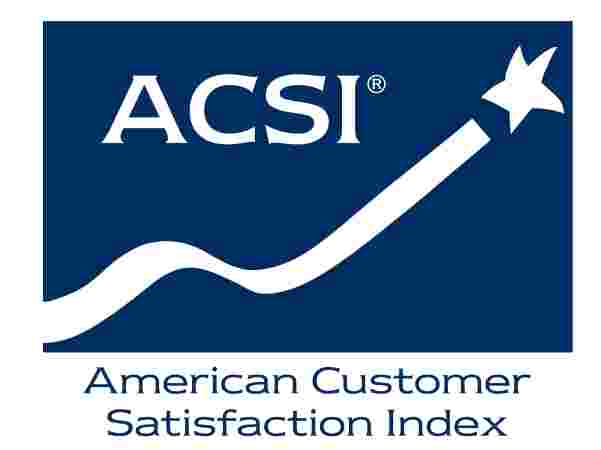by David Ham | August 017, 2017
Asking customers to take a survey and then using it as a sales opportunity can be destructive. Engaging in the practice can easily ruin customer relationships and damage your brand.
A recent New York Times article (“Robocalls Flooding Your Cellphone? Here’s How to Stop Them,” May 11, 2017) provides some context around American consumers’ frustration with robocalls and other telemarketing calls. It references a FCC report listing telemarketing calls as the number one consumer complaint, and estimated that Americans received 2.4 billion robocalls per month last year.
Recently, I was just getting off one call on my cell phone when I had a new one coming in. Frequently when I’m busy, I let calls go to voice mail if I don’t recognize the number or the location that appear for the incoming call. In this case, during a busy work day, instinct kicked in and I (regrettably) answered the call.
There wasn’t the usual robocall pause as a pleasant, live human greeted me by name, thanked me for being a customer of a certain hotel chain’s loyalty program, and asked if I had a few minutes for a survey about my recent stay at one of their hotels. I probably agree to take such surveys far more than others of you. As a customer experience researcher and consultant, I’m curious as to what types of questions other organizations are using to see if I can learn anything new.
The “survey” started out just fine with some standard questions about my recent stay. It then moved into some discussion about my travel in the past year (e.g., how many times did I stay in a hotel for leisure, how many for business, etc.). The interviewer had probably asked about ten generic questions when she asked something that was new and different to me. The question was something like, “For your next vacation, would you prefer to visit a waterfront resort, an amusement park, or a large metropolitan area?” I failed, naively, to see where that question was going, and offered my own response option indicating a national park would probably be my first choice.
Ask yourself a question when designing customer experience surveys. Would a customer see this questionnaire as a credible attempt to help your business (or client) provide better service? And, if not, what type of damage might you do to customer relationships and possibly the brand?
My answer apparently didn’t work for her and she came back to her question and the response options in her script. I played along by using one of the choices she provided. That was when the call morphed from a survey to a sales pitch like: “As a loyal member of our rewards program, we’re pleased to offer you a special getaway, blah, blah, blah.” I told her I wasn’t interested in the offer or the timeshare pitch that would be included. She quickly tried to explain that this was a “benefit” while pushing to transfer the call to a reservation agent (timeshare sales rep?) who could help me plan my vacation. I briefly explained how this was obviously a sales pitch under the guise of a survey (as if she didn’t know that already, I suppose) and ended the call.
To me, this was worse than a robocall and offensive on multiple levels. As a consumer, I want to know the clear intent of a call up front – is it a survey or is it a sales call? As a member of their loyalty program, I was even more offended by the misleading nature of the call. This is how a large corporation “rewards” paying customers? Finally, as a practitioner in the customer experience field, well, I’m embarrassed for our industry. This type of action reflects poorly on our efforts to conduct valid research on behalf of clients who want to provide better products and services to their customers. Robocalls often come from randomly dialed numbers seeking cheap leads, either for business purposes or scams. This was a legitimate multinational corporation targeting its own customers for sales after having them answer a series of survey questions – some of which I now suspect will be used to pursue me in future sales campaigns.
In today’s “big data” era, businesses are legitimately tracking a lot of information about their customers’ behavior and tailoring offers accordingly. When I visit a site like Amazon.com, for example, they tailor offers to me based on my known interests from using their site. I know that some consumers are uncomfortable with this concept but others appreciate the targeted offers and there is nothing misleading about it.
Asking customers to take a survey and then using it as a sales opportunity is very different. CFI Group’s white paper on the Top 10 Customer Satisfaction Survey Best Practices does not actually address this issue, as it is generally assumed in the industry that businesses would not behave this way.
That assumption was incorrect with this hotel chain so I’ll add one more best practice: Ask yourself a question when designing customer experience surveys. Would a customer see this questionnaire as a credible attempt to help your business (or client) provide better service? And, if not, what type of damage might you do to customer relationships and possibly the brand?
CFI Group can help your business develop a customer experience feedback program that will strengthen customer relationships and build your brand.
Other Resources
- Date
- September 7, 2023
by David Ham | September 7, 2023 With the amount of money involved in professional sports contracts, the current trend toward deeper analysis makes good business sense. However, […]- Date
- June 2, 2023
by David Ham June 1, 2023 I will start by stating the obvious, inflation is forcing consumers to make tradeoffs and difficult decisions. This puts businesses […]- Date
- August 1, 2022
by David Ham August 1, 2022 Five years ago, I wrote a blog that asked, Is This a ‘Hook-Up’ or a Long-Term Relationship? The post was […]- Date
- May 24, 2022
by Omar Khan May 24, 2022 A few years before getting my first job as a consultant, I spent a summer abroad in the United Arab […]






